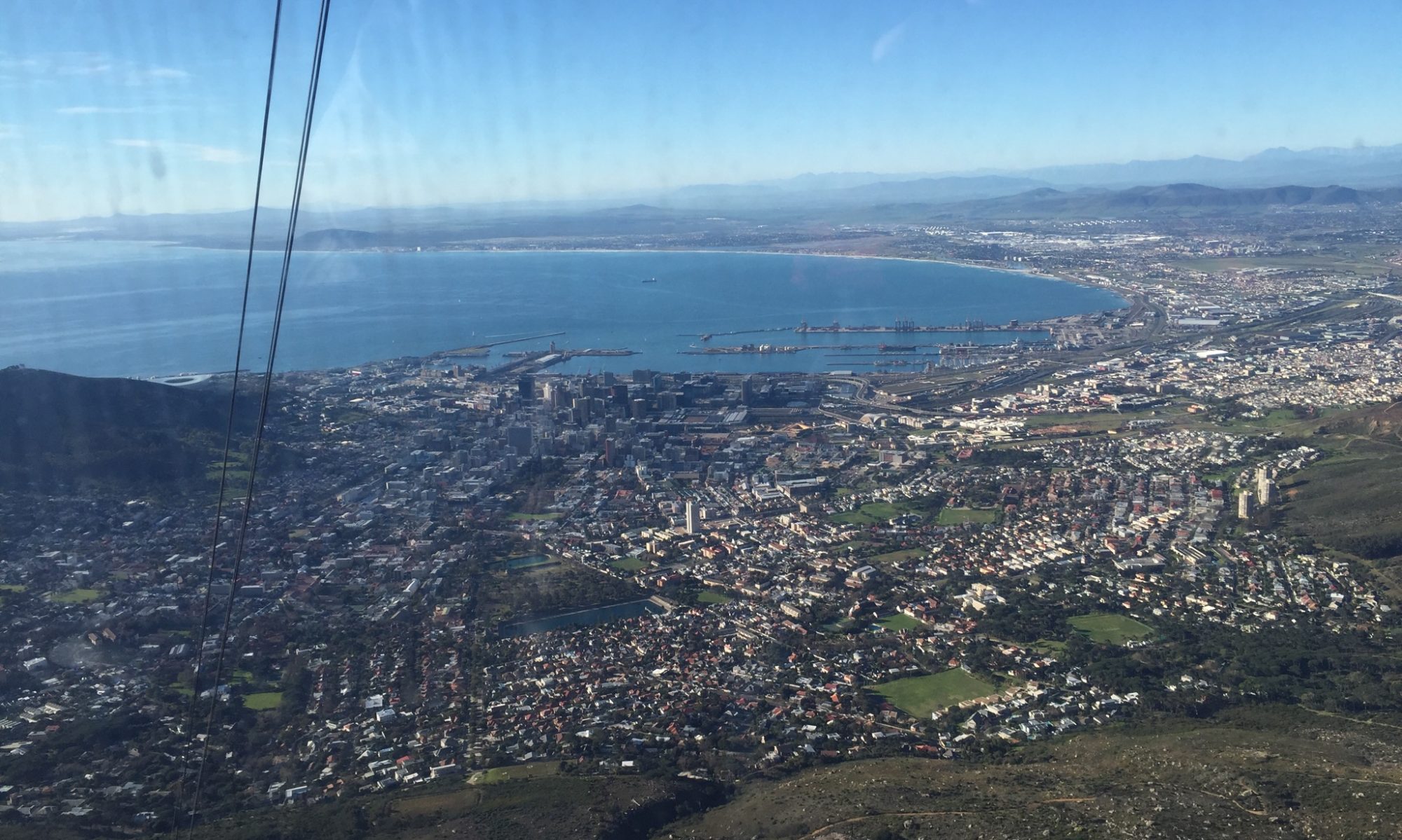May 22, 2017
Today, I am currently recovering from an amazing trip that has completely exhausted every single part of me. As I think about all of the amazing things I did while in Cape Town such as visit the District 6 Museum, look at all of the historic sites in the City Centre, visit the renowned Robben Island, and even have enough time to visit the penguins on the white sandy beaches; I do believe that one visit to Cape Town University was my overall favorite of this week. For starters, before getting to the campus, I did not know that we would be having lunch with some of the faculty as well as current students there. While at the table, I sat next to a girl named Thembi, who is a senior majorinf in English, Public Relations, and Media. While we ate, she and I talked about normal things such as the best places to go get makeup or hair done, the best clubs in town, and even things that I did not think she would know much about like YouTube. I was pleasantly surprised to find out that Thembi was not much different than the people that I hang out at school with. Now looking back, I believe that I underestimated how much Thembi had to offer because of these preconceived notions of me being American (perhaps superior?) and assuming that because she was from a different country other than mine, that she knew nothing about the things that I did. Nevertheless, Thembi and I hit it off and she even invited us to attend one of her lectures so we could see how a class usually works in this campus setting. Before going to class though, my classmates and I asked her various questions about growing up in South Africa. She told us that she was originally from Johannesburg and that she had grown up being the youngest with two older brothers. Being born just shy of the ending of apartheid, she informed us that even though her parents had experienced it and seen the effects in real time, she and her brothers were often aloof to what was going on around them because even though apartheid claimed to end in 1994 it didn’t really stop there. Previously knowing that it was somewhat difficult for an African woman just to survive simply because of her role as a woman in society, I decided to ask Thembi if she ever felt any pressures from home and how she was personally treated in her household. She did tell me that while she was the only girl, and the baby at that, it did not stop her father and brothers from being extremely hard on her emotionally.They often depended on her as being another version of the mother, in a sense. She said that even her mother taught her at a very young age that she needed to learn how to do simple household things: cook, clean, know how to keep your husband happy, etc. When she decided to go to college, hers mother was not as upset as I thought they might be, but instead her mother wanted her to find a husband while she was away.Her father was against her going in the first place because he did not think she needed a college education. Thinking back to myself being a young woman in college, close in age to Thembi, I look back on my childhood and realize that I was taught at a young age to clean up after myself, getting an allowance to do certain chores around the house, and other things of that nature. However, I did not think my parents were attempting to prepare me for being a wife and a mother by making me sweep the kitchen at nine years old.Also, as i thought about being in highschool preparing fro college, it was never a question of if i could or should go to school, it was simply a matter of where i wanted to go. I stopped here to think that perhaps here is where a sense of privilege came from (maybe from being an American or because of my place in the social class) because my parents never attempted to influence me not to go to school because the general consensus in America is that college is almost always the next step if you want to be successful. This was perhaps one of (if not the only) time on this trip that our cultural differences really became apparent to me, maybe because instead of an older man or woman relaying his life story to me and what he had to go through; I was much more open and understanding of Thembi’s story because of the closeness in age and our bond over similar interests. Over the weekend, I began to read bits and pieces of Gary Siedman’s article, entitled No Freedom without the Women, which to my understanding, essentially meshes together the different ways that South African women were being systematically oppressed by not having any rights before or after apartheid in many sectors. It was only after years of pushback from women for better pay in the workplace, ending subordination, etc. You might be wondering how does this article relate to Thembi’s story. Well, my take on Thembi’s story is that her family and her culture raised her in such a way that was mostly meant for her to be somebody else’s everything, whether it be her parents, her brothers, her husband, or her children and she was raised to think that it was okay not to have aspirations and goals. But somehow Thembi knew this was not what she wanted to do, and still pursued her dreams of attending school. It is women like her that were able to move forward their demands for equal rights in every sector of government, business, and politics. Without them, women would still be at an even greater disadvantage than they had previously been in (because the problem is not completely solved) and it is people like Thembi that are put in these situations to break the mold. A woman being bold and standing up for what she believes in does not make her crazy nor does it make her ungrateful for what men have given her up to this point; it simply is not enough. In my opinion, I want to know that I matter, that I was able to make a difference, not just be someone’s wife and mother.

